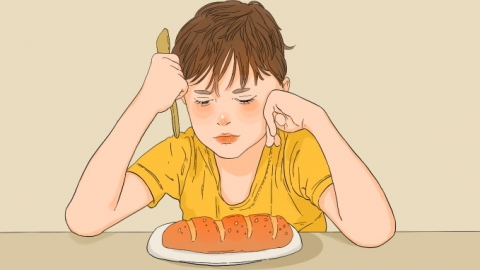What are the reasons for not growing taller?
Short stature may be caused by genetic factors, inadequate nutrition, growth hormone deficiency, hypothyroidism, vitamin D-deficiency rickets, and other conditions. It can be improved through dietary adjustments, nutritional supplementation, medication, and lifestyle improvements. If height growth remains stagnant for a prolonged period or significantly lags behind peers, timely medical evaluation is necessary.

1. Genetic factors: Height is largely influenced by parental genetics. If parents are short, their child's growth may naturally be slower, typically without other abnormalities, and the growth curve generally follows genetic patterns. It is recommended to ensure the child gets sufficient sleep (to promote growth hormone secretion) and engages in regular physical activity (such as jumping rope or basketball) to maximize growth potential.
2. Nutritional deficiency: Long-term lack of key nutrients such as protein, calcium, and vitamin D can impair bone development and lead to slow height growth. This may be accompanied by low body weight, brittle yellowish hair, and easy fatigue. It is advised to adjust the diet by increasing intake of milk, eggs, lean meat, fish, shrimp, and fresh fruits and vegetables. Nutritional supplements may be added under medical guidance if necessary.
3. Growth hormone deficiency: Insufficient secretion of growth hormone due to hypothalamic-pituitary dysfunction impairs linear bone growth. Children with this condition show明显 delayed height growth compared to peers, with an annual growth rate below 5 cm, and often have a youthful facial appearance. Under medical supervision, patients may use medications such as recombinant human growth hormone for injection, growth hormone-releasing hormone injections, or growth hormone secretagogue peptides to improve symptoms.
4. Hypothyroidism: Insufficient thyroid hormone secretion slows metabolism and bone growth, leading to delayed height development. Symptoms may include cold intolerance, fatigue, delayed intellectual development, and dry skin. Treatment under medical guidance may include levothyroxine sodium tablets, thyroid extract tablets, or levothyroxine oral solution to relieve symptoms.
5. Vitamin D-deficiency rickets: Lack of vitamin D impairs calcium and phosphorus absorption, resulting in poor bone mineralization and disrupted skeletal growth. Children may experience slow height growth, skull deformities (e.g., square head), rachitic rosary on the ribs, or bowed legs (O-shaped or X-shaped legs). Treatment should follow medical advice and may include vitamin D drops, vitamin AD soft capsules, or calcium carbonate D3 granules to alleviate symptoms.
Daily care should include ensuring 8–10 hours of sleep per day and at least 30 minutes of physical activity daily; regularly monitoring height and weight and tracking growth curves; and creating a relaxed family environment to prevent excessive anxiety in children.





